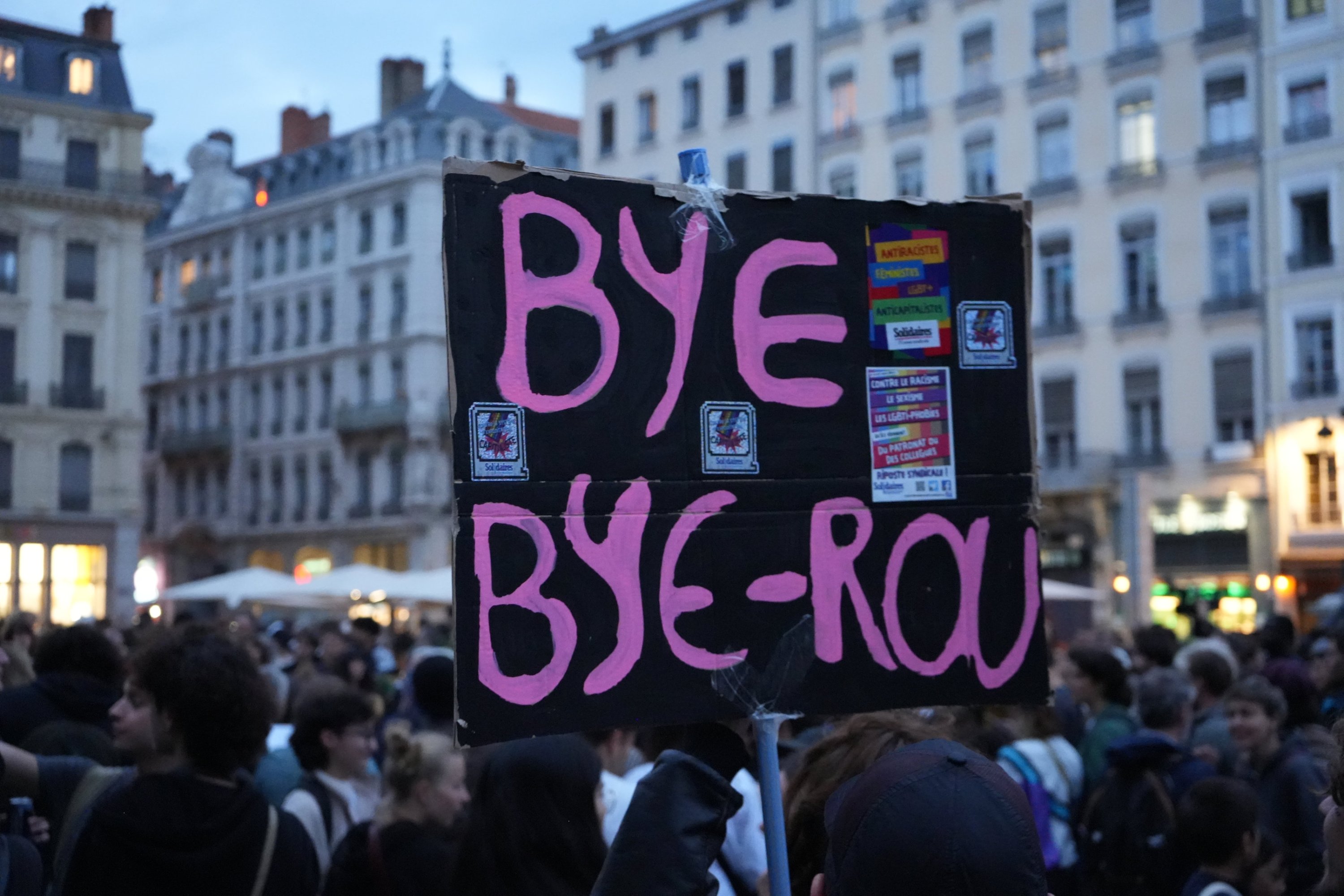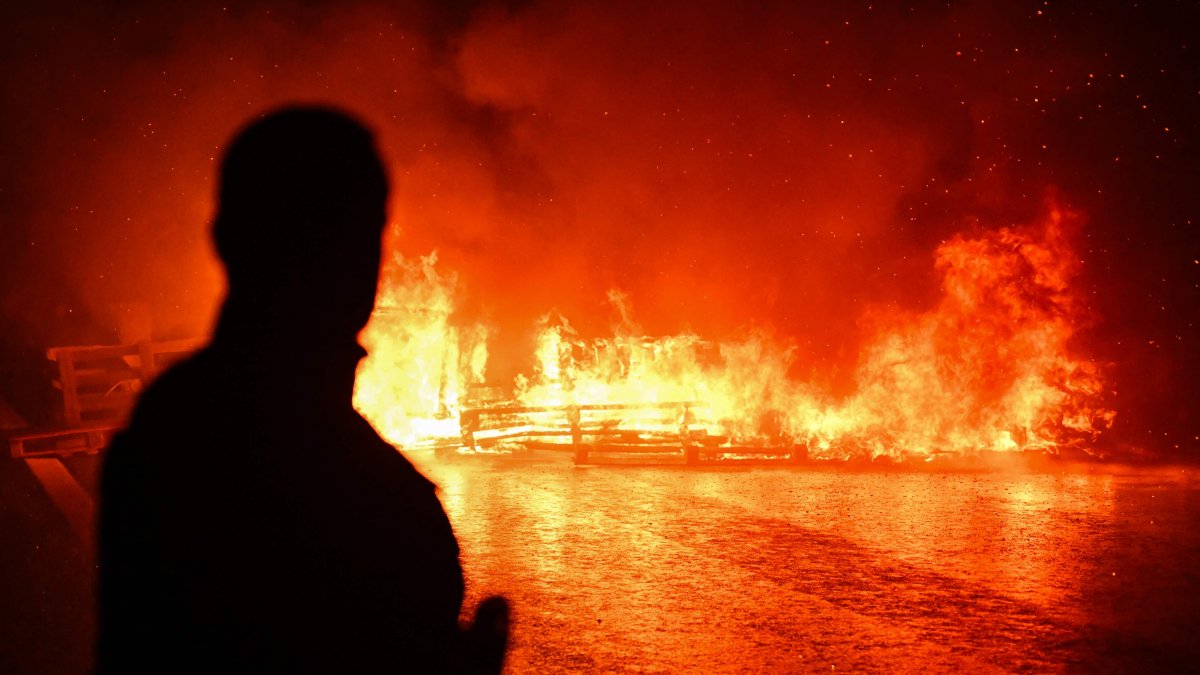The government in Paris, already weakened by months of infighting, now faces another spiral of crisis. On Oct. 8, Prime Minister François Bayrou, appointed on Dec. 13, 2024, with promises of stability, has lost control of the National Assembly just as the country braces for mass strikes under the banner of “Block Everything.” The episode is not merely a domestic dispute but a stark reminder of France’s chronic governance failures, with consequences that extend far beyond its borders.
The French National Assembly delivered a decisive blow to Bayrou’s government, voting 364 to 194 against his leadership. Under the French Constitution, Bayrou is now compelled to resign. Before the confidence vote, Bayrou spoke for nearly 45 minutes in a chamber oscillating between tense calm and bursts of agitation. In a sombre, almost alarmist tone, he acknowledged his government’s responsibility: “I wanted this moment of truth as head of government, with the consent of the president of the republic.” He then turned his criticism toward rivals, singling out President Emmanuel Macron’s party and Jean-Luc Melenchon’s new Popular Front, warning them not to “fall into the trap of electoral scheming and dividing up positions,” but instead to pursue a genuine majority project ahead of the presidential election in just 18 months.
What to expect from Bayrou?
The collapse of the Bayrou government, sealed by the predictable failure of the confidence vote, marks yet another turning point in a crisis that has rocked France for over a year. Four prime ministers in just 20 months – a revolving door at Matignon, unprecedented in the history of the Fifth Republic. But Bayrou’s downfall is more than just another chapter in France’s long chronicle of instability: it opens the door to a period of deep political uncertainty.
At the heart of this crisis lies Macron. While Bayrou’s Cabinet has been portrayed as the immediate casualty of unpopular austerity measures, it is ultimately Macron’s worldview and economic approach that have pushed France to the edge of insolvency. France’s annual interest payments on public debt now hover around 100 billion euros, compared with just 25 billion in 2018 – a staggering increase that underscores years of mismanagement and the government’s failure to enact meaningful reforms.
Macron’s indecisiveness, both in foreign policy and in addressing pressing domestic challenges, has left his leadership under growing scrutiny. Among the French political elite, debate over his political future has intensified, while disillusionment on the streets risks igniting new waves of protest in cities such as Paris, Lyon, Marseille and Rennes. The question is no longer whether Macronism has failed, but what will follow in its wake.
From a legal standpoint, Macron played his last card by appointing Defense Minister Sebastien Lecornu as prime minister. The Constitution makes it clear that if a president dissolves parliament for a second time, it could trigger not only new legislative elections but also a fresh presidential vote.

A “farewell” demonstration was held after Prime Minister François Bayrou’s minority government failed to win a vote of confidence, Lyon, France, Sept. 9, 2025. (AA Photo)
Golden egg for French far-right
Macron’s much-vaunted “bold” political manoeuvres have carried unintended consequences: a sharp rise in racism and Islamophobia across France. His early policy priority of opening the French market to foreign investors and attracting international capital was presented as a modernizing project. Yet for many, it triggered a sense of cultural estrangement and the perception that traditional French identity was under threat. This discontent, instead of translating into renewed political engagement, has too often been channelled into resentment against minorities, deepening the fractures within French society.
In this climate of unpredictability and a weakening sense of national belonging, France’s political “response” has been the rise of Marine Le Pen’s Rassemblement National. The party has positioned itself as the voice of disillusioned citizens who feel abandoned by the traditional political class. Ahead of the confidence vote, Le Pen declared that the moment marked “the end of the agony of a ghost government, of a government that has no government but a name.” Her words captured the public frustration not only with Bayrou’s short-lived tenure, but with a political system increasingly seen as incapable of delivering stability.
While emphasizing the frustration and isolation of France’s political elite, Le Pen has twice entered into negotiations with both Macron and Bayrou. She has aimed to ease the political restraints placed upon her, thereby clearing the way to formally announce her candidacy for the presidential election scheduled to take place in 18 months.
This political vacuum has opened a new space for Le Pen to present herself as the so-called voice of the people. In a France where liberal policies have frayed the social fabric, this is a golden opportunity for the far right. Le Pen now speaks of expanding social benefits, strengthening the role of public servants, and reviving conservative traditions of French identity. These pledges resonate strongly with sections of the public, yet the finances required to implement them remain entirely unrealistic. Her solution, therefore, defaults to a familiar refrain: blaming foreigners. In a climate where mainstream parties appear directionless, Le Pen’s political trajectory seems poised to extend far beyond a presidential bid – positioning her as a lasting force in French politics.
French politics on edge
The immediate future of French politics looks increasingly uncertain and unstable. With the Bayrou government gone and Lecornu stepping in, expectations are high that he will address both domestic and international challenges. Yet, France is bracing for another shock: the “Bloquons Tout” (“Block Everything”) movement. Echoing the Yellow Vests, it demands sweeping economic reforms to restore purchasing power and ease the burden on ordinary citizens.
The problem is that Lecornu’s expertise lies in foreign policy and security, not in economic management. At the very moment when mass social unrest threatens to spill into strikes and nationwide disruption, the government appears ill-equipped to calm the anger. This vacuum creates fertile ground for Le Pen’s Rassemblement National, which is seizing the discontent to present itself as the voice of the frustrated majority.
Meanwhile, France’s traditional parties remain fragmented, unable to offer a coherent vision. The risk of prolonged political paralysis is growing, and with it, the danger of deeper social divides. France stands at a crossroads: bold leadership is urgently needed, but the path back to stability remains elusive.

The Daily Sabah Newsletter
Keep up to date with what’s happening in Turkey,
it’s region and the world.
SIGN ME UP
You can unsubscribe at any time. By signing up you are agreeing to our Terms of Use and Privacy Policy.
This site is protected by reCAPTCHA and the Google Privacy Policy and Terms of Service apply.
